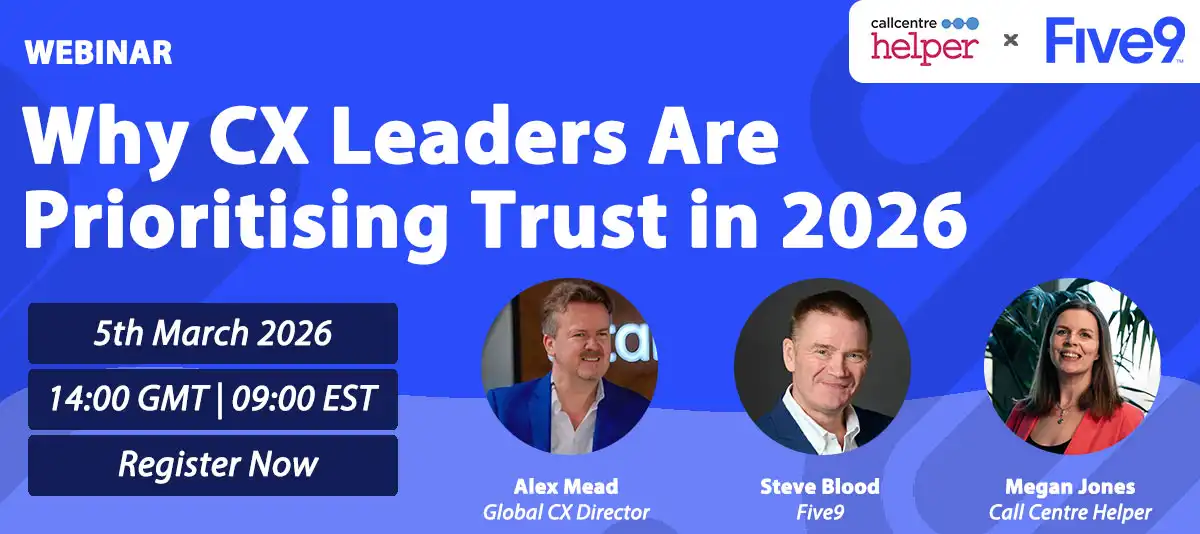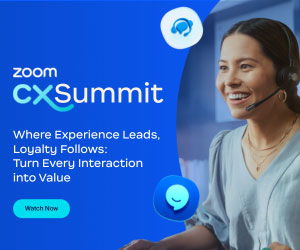Richard McElroy of Calabrio asks three questions which will help you to determine whether or not you are a Voice of the Customer (VoC) superhero.
As a contact centre leader, your customers love working with you. Your agents love working for you. Your peers love working alongside you.
Under your guidance, your team consistently achieves top performance scores and high customer satisfaction ratings. You seem able to accomplish whichever task is put in front of you, and you relish new challenges that come your way. You’re truly a rock-star contact centre manager or supervisor.
Out of everyone working in your organisation, it seems like you at a minimum should be anointed with “Voice of the Customer (VoC) Superhero” status, right?
Not necessarily.
Achieving this kind of status requires much more than that, and contact centre analytics plays a key role. Do you have what it takes?
1. Are You Savvy About Contact Centre Analytics?
It’s common to find confusion in your contact centre about what “analytics” really is, or what it can be. Many people, particularly those with finance backgrounds, equate the term with hard numbers, not realising that today’s rich analytics can be so much more than that.
With the emergence and evolution of specialised analytics technologies—such as speech analytics, text analytics, desktop analytics and sentiment analysis—the definition, purpose and outputs of analytics in your contact centre have moved beyond simply hard data to true representation. Now, you can get a truly authentic flavour of your customers across all the channels by which you serve them. But only if you use these technologies, and use them properly.
If you want to be a VoC superhero, at a minimum you need to:
- Use your own analytics savvy to help stakeholders overcome predispositions they may have to a numbers-only approach to contact centre analysis.
- Implement and continually optimise multichannel communications tightly tied to specialised analytics tools that measure those channels’ usage, interdependencies and churn.
- Keep an open mind when scrutinising calls and other customer interactions—you never know what you might unintentionally learn.
2. Do You Plan and Prepare Properly for Analytics Projects?
Inadequate pre- and post-deployment planning sabotages more analytics projects than you can possibly imagine. That’s because it’s human nature to resist change, and analytics projects fundamentally change how companies operate.
So, if you want to be a VoC superhero, at a minimum you need to:
- Put together a cross-functional team that will guarantee your analytics projects succeed—a mix of both formal and informal leadership, subject-matter experts, advocates, analysts, coaches and “cheerleaders”.
- Make sure you have enough initial and ongoing funding to support the project’s needs.
- Encourage everyone in the company to suggest possible analytics projects, then maintain an open-door policy—and open mind—when you receive this input.
- Support and encourage analysts prone to burnout by empowering them and providing them with ongoing training.
3. Have You Implemented a Formalised Process for Your Analytics Projects?
Too many requests and too many distractions can easily derail even the best-intentioned analytics project. Scope creep is natural, but a ruthless focus on what really needs to be done must be maintained.
That’s why, if you want to be a VoC superhero, at a minimum you need to:
- Create a formalised, closed-loop project plan and process for your analytics projects.
- Identify and stay focused on the most important and/or most immediately impactful projects, and close them out before moving on to something else.
- Establish baselines, then measure and record results against those baselines on an ongoing basis, and distribute the findings to your stakeholders every week.
- Stay attuned with shifting corporate goals and strategies, and prioritise analytics projects according to which ones most strongly tie back to company goals.
Author: Robyn Coppell
Published On: 8th Mar 2019 - Last modified: 12th Mar 2019
Read more about - Guest Blogs, Calabrio



































